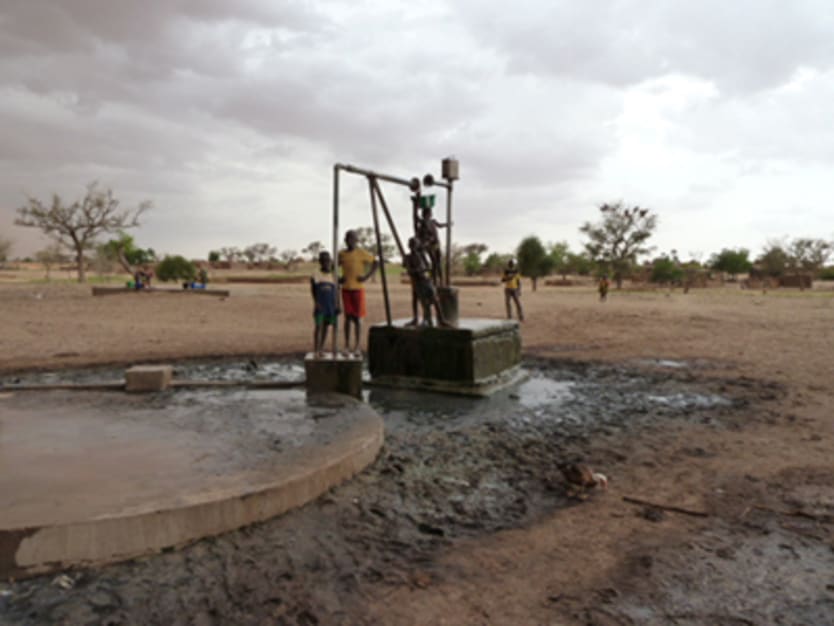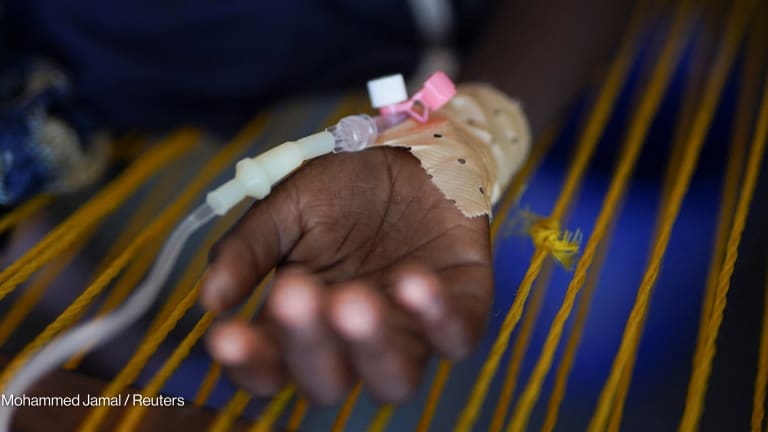
The ancient Greek dramatist Aeschylus said that “in war, truth is the first casualty.” It’s also safe to say that the second casualty is human development.
Conflict not only stagnates development — it reverses development, leaving the country in a state of fragility.
One in four people in the world live in a fragile state devastated by past conflict. Their governance apparatus weakened, fragile states are less able to generate and mobilise domestic resources. That leaves them more dependent on foreign aid, and in need of greater support to provide even basic services like access to clean water, adequate sanitation and hygiene.
Right now, people living in fragile states account for 65 percent of the global population without access to safe drinking water, and 54 percent of those without adequate sanitation, as outlined in the World Development Report published by the World Bank.
We believe that the provision of water and sanitation aid, while a a critical life saving intervention in its own right, can also serve as an excellent entry point for how we support these fragile countries. Not only do we improve access to these necessities, but in doing so we also bolster and increase the capacity of the recipient government. Fragile and conflict-torn states strengthen the case for effective cooperation between donors and developing country governments.
WASH in Niger
WaterAid has seen how political instability and inadequate water and sanitation access go hand-in-hand in some of the poorest countries in the world.
Niger is not an exception. We have been beset by political turmoil and armed conflicts. Economic and financial governance have been marred by corruption and poor administration. According to the World Health Organization and UNICEF, half of Niger’s population lack access to water, with the figure increasing to 61 percent for people living in rural areas. The sanitation situation is even more critical, with 90 percent lacking access to adequate sanitation, and 78 percent practicing open defecation.
Niger’s failure to create an acceptable public health environment for its people has been due to a lack of clear policy and strategy in the aftermath of recurrent conflict and structural damage. It has had a negative knock-on effect on the welfare and prospects of future generations of Nigeriens. That is why authorities make the WASH sector one of their top priorities for the development of Niger.
Each year, over 12,000 children under the age of five die from preventable diarrhoeal diseases attributable to unsafe water and poor sanitation in Niger. According to the Ministry of National Education, the school completion rate for boys is just 55.8 percent and for girls only 47.7 percent. It is unlikely to be a mere coincidence that 50 percent of schools do not have modern water points.
Plans in motion
Since 2010, WaterAid has been responding to the challenge in Niger through a rural program to increase access to water and sanitation facilities for vulnerable populations in nomadic areas and island populations on the Niger river, and a national program to strengthen the performance of the WASH sector throughout the whole country.
We are also engaged in multilateral platforms like Sanitation and Water for All, a global partnership between governments, donors, multilateral agencies and civil society to create a political and institutional framework to improve water and sanitation coverage so everyone can gain access to these services.
SWA has a primary focus on those countries which are most off-track on the water and sanitation Millennium Development Goals, most of which are fragile states. Partners work together to strengthen national planning of sanitation, safe drinking water, investment and accountability frameworks to improve the targeting and impact of resources, and the initiative supports the national processes for developing and strengthening WASH frameworks.
One tool for achieving this is the National Planning for Results Initiative, which aims to accelerate WASH coverage in countries where it is lacking. It provides intensive support to bring together representatives from donor and developing country governments and other partners to create or restore an effective framework for WASH in fragile states like Niger, where we are working with government and other partners to strengthen the WASH sector through this mechanism.
Change in approach
WaterAid believes water, sanitation and hygiene are vital components of the national development process.
The call now is for a change in approach, linking humanitarian engagement to a longer-term development focus — helping to build the health and productivity of the nation while supporting the development of accountable systems.
What this means is an increase in aid investment, and a need for policymakers, donors and practitioners to ensure that their investments are coordinated and support the development of capable and accountable national service delivery systems.
Currently only 6 percent of global development aid goes toward WASH. These are basic necessities, prerequisites to humane living standards and recognized as fundamental human rights. Increasing funding on this must be a priority.
Simply put, water, sanitation and hygiene are the foundation stones of building a stable, peaceful and developing state.
Join the Devex community and gain access to more in-depth analysis, breaking news and business advice — and a host of other services — on international development, humanitarian aid and global health.
See more:








